Daniel Seidemann
There are three schools of thought on the subject. The first group believes that the two-state solution is dead as a doornail. It consists of radical Palestinians and radical Israelis on the left who never really accepted the Israeli state in the first place. It also includes the hardcore settler right who never accepted a Palestinian state. In the second group, you have people who see the two-state solution as not only not dead, but immortal—something that can’t be killed. Settlements, they believe, can go up, but also come down. As Aaron David Miller has written, these are people who believe that because there’s no replacement to the two-state solution, it therefore cannot die and they just kick the can down the road. The third group consists of the people who pretend the two-state solution is alive but treat it like a unicorn in a children’s book. It’s totally elusive, and if it steps out of the book’s pages, it will immediately be killed. The Netanyahu government is the leading proponent of this school of thought: Netanyahu’s government says it supports the two-state solution but doesn’t explain in what form and instead, does everything in its power to kill it. I don’t belong to any of these groups.
The two-state solution is in mortal danger. I say this not based on mood, ideology or faith, but on empirical evidence. There can be a viable Palestinian state if you uproot 120,000 people. It will be traumatic, but politically affordable. But if that doesn’t happen soon, there is only so much territorial abuse one piece of land can absorb. Take Jerusalem. It is balkanized demographically and geographically so that no reasonable person can look at it and believe that a two-state solution is possible. Very soon, the creation of political boundaries may no longer be possible, and after that, we will lose the possibility of creating two states. The two-state solution isn’t dead, but it is dying—in months and maybe a few years. For anyone for whom the Zionist enterprise is dear, it is clear that we need to keep the two-state solution on life support because there is no alternative—only bloodshed. And so if the two-state solution does die, may God have mercy on our souls.
Daniel Seidemann is the founder and director of Terrestrial Jerusalem, an Israeli NGO that works toward a resolution to the question of Jerusalem in the context of the Israeli-Palestinian peace agreement.
Dror Moreh
I am pessimistic—though I would say realistic—about the prospect of a two-state solution. The chances that a two-state solution will happen are becoming slimmer every day. You need great leaders on both sides to create that kind of solution, but I don’t see that, especially not on our side. Part of the problem is that the people on both sides don’t really believe that it is possible: Israelis don’t see it as viable for a number of reasons, and Palestinians don’t believe it will happen because we’ve never given them any reason to believe this is something we want. To make progress, leaders need to say what they mean and mean what they say and stop playing games. If our leaders believe in a two-state solution, then they should act accordingly. I refer mostly to Prime Minister Netanyahu, who doesn’t act as if he means what he says.
I think it’s also imperative to explain to settlers, especially those who would need to be evacuated, that in leaving the settlements they would be doing what is in the best interests of Israel. We need to be clear and say, “Yes, we sent you and you served and did your job, but we need you to do something else and come back now.” This needs to be done seriously, so that they understand that evacuation is in Israel’s best interests. These are small steps, but they are vital to enable security and trust—both of which are lacking at this point. Maybe things will change one day and when that happens, perhaps the two-state solution can be rescued and resuscitated. I am not a politician and I am not a pollster, so I cannot say how representative my thoughts are. But from where I stand now, I have little optimism. With the current government, I can’t see the two-state solution becoming reality because there is simply no will.
Dror Moreh is an Israeli filmmaker whose most recent documentary, The Gatekeepers, was nominated for an Academy Award this year.
Shlomo Riskin
I certainly hope the two-state solution isn’t dead. I believe that in the long run, it can even be a most optimal solution. What gives me optimism are the relationships we have here in Efrat, especially among religious leaders in the area. We have excellent working relationships, as well as social relationships—we go to each other’s weddings and funerals—and I see representatives of the Palestinian communities in our area at least every two weeks. Tragically, this people-to-people cooperation is not the case with the political leadership, even with Mahmoud Abbas, who is considered a moderate but has never shown himself to be such. Abbas controls the Palestinian media, and yet you often have programs that glorify suicide bombers as martyrs or show Jews as Satans with the tails of pigs. He also demonstrates a total lack of respect for any of our rights for being here and doesn’t recognize Jewish claims to the Temple Mount. The way I see it, the ABCs of finding a political agreement with two people and two states are that each state needs to respect the right of the other to be there. That is true for most Jews vis-a-vis the Palestinians, but it isn’t true of the Palestinian leadership; and so as long as they are unable to recognize the Jewish state, it’s impossible to have a two-state solution.
From what some sheikhs tell me, it’s against the Qur’an to give up lands that are under Muslim rule, so giving up claims to land as part of a two-state solution is a non-starter for religious Muslims. From the beginning of the conflict, Israel has always been willing to compromise—from the UN partition in 1947, to Ehud Barak’s willingness to give up 94 percent of the West Bank in 2000 and even to Ehud Olmert’s willingness to give up East Jerusalem. Hamas says that Israel is a cancer in the Middle East and has no right to exist. Now Fatah is talking about a unity government. How can we be expected to live alongside that kind of Palestinian state? There needs to be a fundamental change in attitude.
We are up against a brick wall, and it is time to think out of the box and focus on temporary, rather than final solutions. There is good will on both sides between people and together we can develop this country to an amazing degree if we think out of the box of sovereignty. We need to deal with people rather than elected governments and focus on peaceful relations rather than the issue of states because when we start talking about sovereignty, we get into trouble. The issue of statehood needs to be deferred—unless there is a change in government.
Shlomo Riskin is the founding chief rabbi of the Israeli settlement of Efrat in the West Bank and chancellor of the Ohr Torah Stone Institutions.
Efraim Halevy
On both sides of the divide, the political masters do not have the capability to implement a two-state solution. On the Israeli side, the prime minister does not have the support of the population to implement a massive population shift from the West Bank. From the other side, the Palestinian leadership does not control the entire area, which is supposedly in Palestinian hands. There is little merit in conducting a negotiation that would result in an agreement or end of conflict when neither side has the capability to implement such an agreement.
However, the idea that we will maintain the status quo is a mirage. The status quo is non-existent—things happen on the ground every day. The two-state solution is the most desirable but the least operative; the status quo is probably the most operative but the least desirable because it means ultimately Israel will not be able to sustain itself as a Jewish and democratic state.
We have to seek a practical understanding that will serve the interest of both sides without the other side having to renounce its devotion to its basic ideology. An example of this is what happened recently in Gaza: When the people from Gaza began shooting rockets, Israel resorted to a weeklong operation and out of the blue, on the eighth day of the conflict, a ceasefire suddenly emerged. Nothing is known in public about this ceasefire, no documents have been published, no official information on who actually negotiated the ceasefire agreements. There are reports of Egyptian military involvement, but these are press reports. Israel won’t talk with Hamas because it is a terrorist organization and Hamas can’t say it will talk with Israel. But in practical terms, somehow ways are being found to do things that have not been done for several years, such as opening up the fishing area for Gazans. I think that similar things can be done with the Palestinians in the West Bank through negotiations with lower visibility.
In reality the number one security threat to Israel today is the danger of Jews becoming a minority in their own state. The number of people whose Jewish identity is being denied in Israel is on the rise, and under the present legal and religious system, hundreds of thousands of former Soviet Union immigrants and tens of thousands of their offspring actually born in Israel are denied their Jewish status. This relates, inter alia, to the two-state solution because as authorities deny their Jewish affiliation, they will be forced to join the non-Jewish growing minorities; the Jews will become a minority in their own state. This, and not the Iranian nuclear bomb, will be a concrete existential threat to Jewish Israel.
Efraim Halevy is a former director of the Mossad and head of the Israel National Security Council.
Daoud Kuttab
The idea that any solution is dead in the Holy Land has to be dealt with carefully. Miracles still happen in Palestine/Israel and therefore nothing is irreversible. In a region where a certain people reversed history after 2,000 years, one can’t expect that others can’t reverse a mere decades-long trend. However, there is no doubt that based on mortal criteria, the two-state solution is definitely in trouble if not on its deathbed.
To break down the question of the state of the two-state solution we need to understand what other options exist and what is possible according to the values of the world in the 21st century. The realistic options that exist in Palestine/Israel are two, with a third that is merely a solution based on delay.
The peoples living in the area between the Mediterranean and the Jordan River must either share the land or share the power. The former can be translated into the two-state solution, i.e., Israelis would live in Israel roughly on the pre-1967 borders of Israel while the Palestinians will live in the areas occupied in 1967. I use the term “roughly” because both sides concede that land swaps might be needed. Sharing the power, on the other hand, entails that borders be removed and all peoples share in the power either in one state or a federated state where citizens would have equal rights. This option is rejected by Jewish Israelis who want a majority Jewish state and not a bi-national Arab-Jewish one.
The delay non-option seeks to perpetuate the status quo with the hope that some demographic change will allow one Jewish state to exist in all the land, which means that a mass exodus of Palestinians will need to take place. This possibility has diminished over the years as Palestinians have learned from two prior exoduses never to leave, and the world of the 21st century will not tolerate physical ethnic cleansing.
More and more Palestinians are abandoning the two-state solution for the one-state solution, even while knowing that most Israelis still hold onto their desire for a majority Jewish state. No sign appears that Jewish Israelis are moving in the same direction as one-state Palestinians. What is holding back the movement toward one-state are the establishment Palestinian moderate leaders who are holding onto the belief of the world community and those who don’t want to see chaos in Palestine if they dissolve the Palestinian government. The longer that these leaders are unable to show results in their efforts, the closer we will be to the tipping point in which Israeli occupiers will be forced to choose whether to directly control and bear full financial and moral responsibility for three million Palestinians or to end the only remaining foreign military occupation in the world.
Daoud Kuttab, formerly Ferris Professor of Journalism at Princeton University, is the Palestinian columnist for almonitor.com.
Anita Shapira
If you say the two-state idea is dead, you should propose something else instead. The only other solution people talk about is the bi-national state, raised by mostly Jewish intellectuals outside of Israel, who are talking more about a principle than to real people about a real solution. If you ask either Jews or Arabs, in the territories or in Israel, more than 95 percent of them would say that they each want a separate state. From an Israeli point of view, a bi-national state means the destruction of the Jewish state.
Other states such as Czechoslovakia, India and Ireland rejected the bi-national solution, and instead chose to have two separate states for two separate peoples. And in each of these cases, the people were similar historically and culturally—the main difference was religious, but not much more. So why did these people not succeed in keeping two peoples in a single territory? Belgium is one example of a bi-national state, but the Flemish and the Walloons are unhappy with this kind of wedding, even though they both belong to a Western culture. They still don’t have a way to settle their differences. The only state that shows some measure of success for bi-nationalism is Canada, and it’s still too early to say whether it will keep going forever. In Israel and Palestine, we’re talking about two peoples who have been constantly at war with each other for the past 120 years. How can these people live together? This is not to mention their differences in culture, tradition, religion, language and social and economic structure. Neither side wants to mingle; each side wants to keep its specificity. Is there a way to solve the problem of Jewish settlements or to keep democracy without partition? No. The question of partition is not a question of possibility; it’s a question of political will on both sides. Yes, it’s difficult—Israel would have to evacuate some of the settlements and come to an agreement with the Palestinians about territory exchange—but not impossible. Somehow the status quo agrees with both sides. It’s a disaster, and people should mobilize the necessary political will to make a change, but so far somehow both sides are incapable of doing it.
Anita Shapira is a senior fellow at the Israel Democracy Institute. Her latest book is Israel: A History.
David Makovsky
It might be convenient for some to wish that the complexity of this issue would somehow disappear, but reality is more stubborn. There’s too much history and too little geography. There are two underlying forces driving the conflict. One is the threat of radicalization, which is evident if we face a protracted impasse. Mahmoud Abbas has many faults, but there’s not a single observer anywhere today who believes he is a proponent of violence. It’s hard to believe there will be any other leader who will advocate a nonviolent course. The second factor that drives this is demography. There’s an active debate about at what point the Arabs between the Jordan River and the Mediterranean will be a majority (taking together West Bank Arabs, Gaza Arabs and Israeli Arabs). But what is more critical is how the status quo is sustained even if they’re only 48 or 49 percent. This is not to suggest that security for Israel is somehow a footnote. There needs to be a way to insist upon Israel’s legitimate security needs in crafting a two-state solution. Without the centrality of the security discussion, any solution is bound to collapse. I don’t want to make it sound like it’s all what Israel has to do for Palestinians. The Israelis have very legitimate concerns given what happened in Gaza with rockets and tunnels. One can imagine Israel is going to stand on its legitimate security needs along the Jordan River. It’s hard to believe you’re going to be able to solve everything at once because Jerusalem and refugees are two narrative issues that cut to the self-definition of the parties. They deal with very explosive issues like religion and nationalism. It seems to me you’re better off dealing with the practical issues of borders and security, creating the two states and deferring these other two questions of Jerusalem and refugees. This seems to be the policy of the United States. When it’s all or nothing in the Middle East, it’s always nothing. No administration wants to have on its watch that the chances of the two-state solution have faded away. It’s certainly a priority for Secretary of State John Kerry, but we’re not diving in right now because we’re waiting to see if there are ways to avoid things getting worse. Kerry has said Abbas has promised for now not to go to the UN; it seems Netanyahu has promised not to have new settlement projects. You cannot give up.
David Makovsky is the Ziegler Distinguished Fellow and director of The Washington Institute’s Project on the Middle East Peace Process.[/vc_column_text][/vc_column][/vc_row]
I am text block. Click edit button to change this text. Lorem ipsum dolor sit amet, consectetur adipiscing elit. Ut elit tellus, luctus nec ullamcorper mattis, pulvinar dapibus leo.





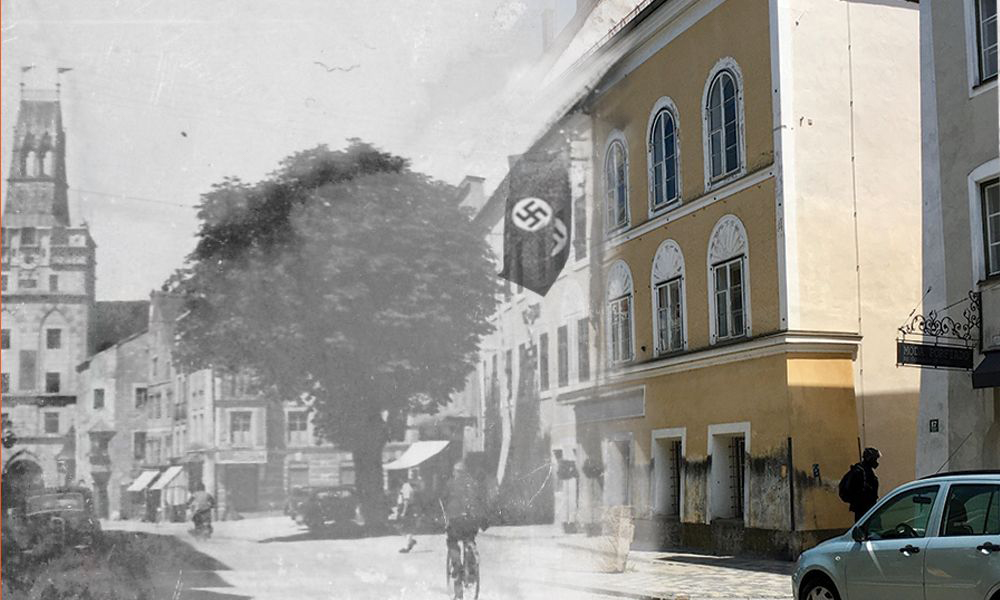
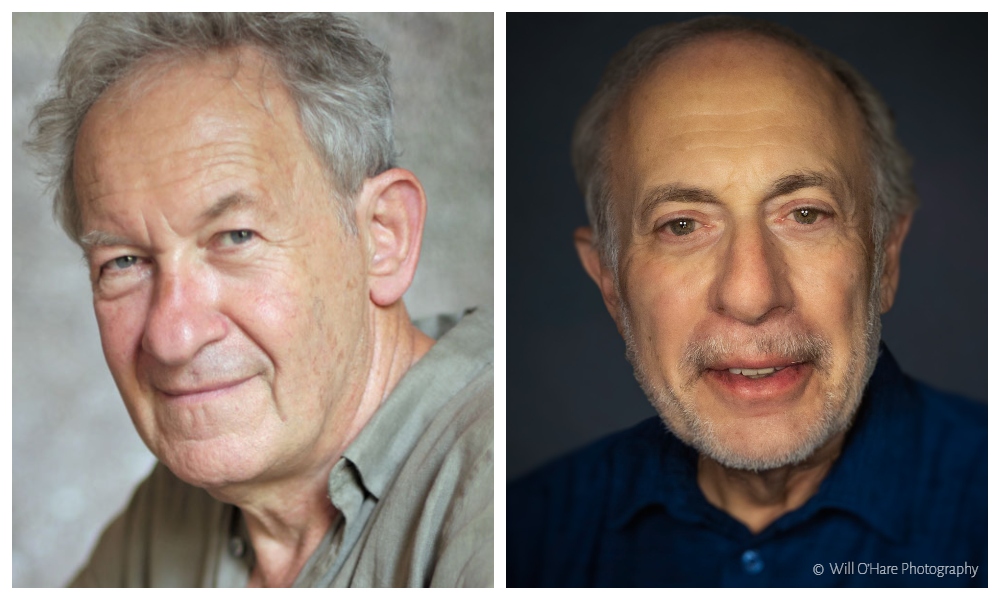

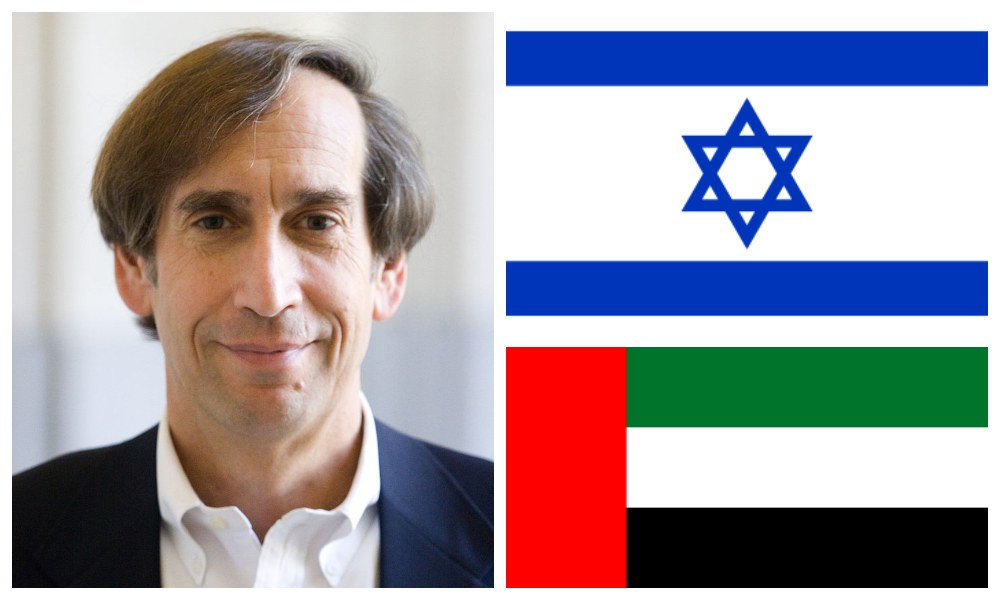
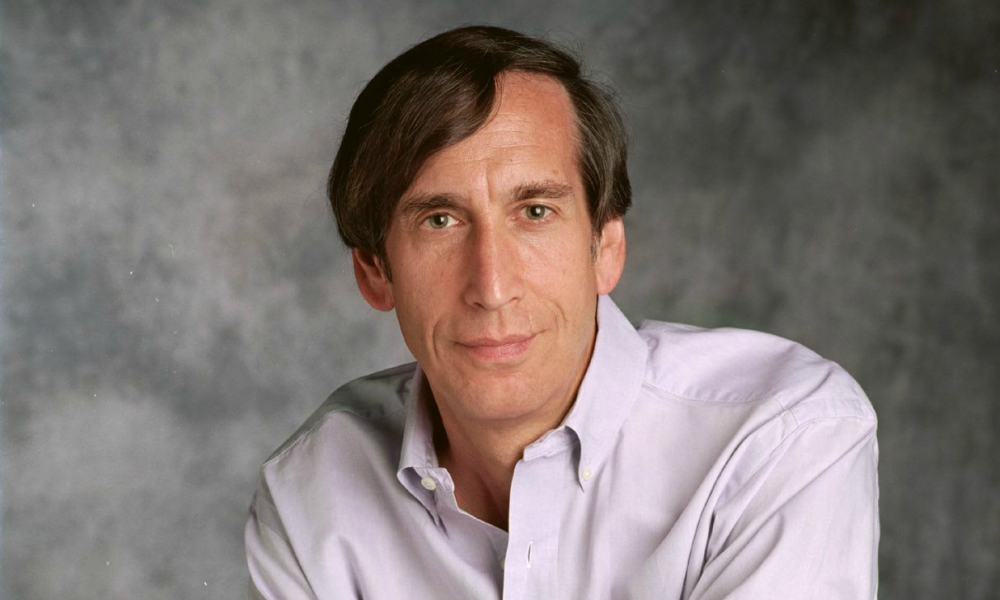


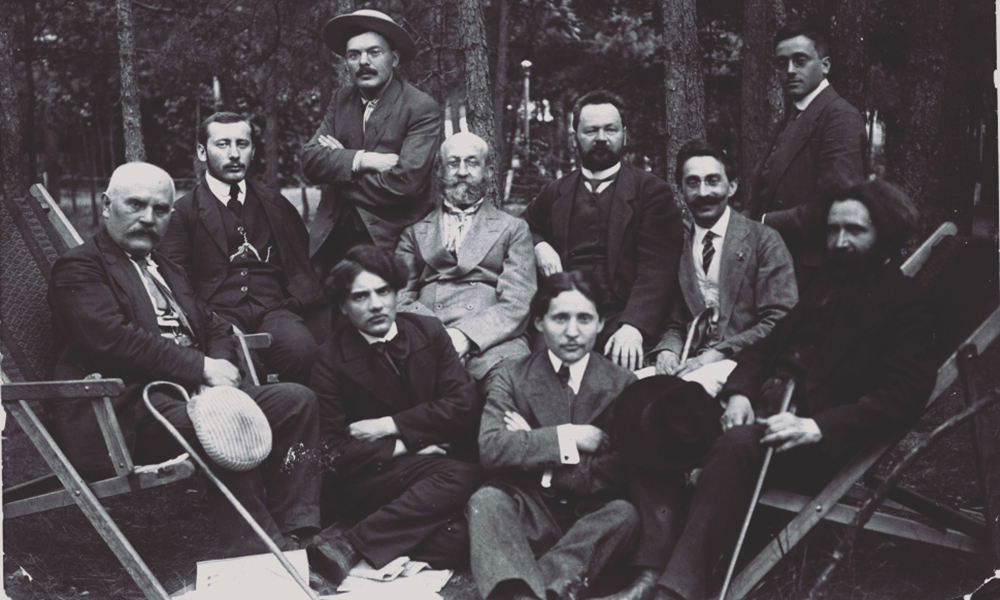

Once again, Moment magazine publishes a symposium without inviting a single Jewish or Israeli opponent of the currently proposed two-state solution (from Oslo through Olmert-Abbas) on the left .
Once again, Moment magazine disrepects Jewish Voice for Peace, not to mention Israelis who are willing to countenance either a one-state or a two-state solution that differs from the Oslo solution.
Once again, Moment magazine publishes the views of Palestinians who are hardly representative, certainly not of prominent Palestinian intellectuals.
Once again, Moment Magazine opts for lazy Jewish communal journalism.
The two-state solution will not work. Everyone knows why the Arabs and –Palestinians want land that belongs to Israel. They do not want Israel and the Jewish people exist.
First things first. The Arab nations that are neighbors of the Nation of Israel should give their Arab-brothers land to establish an Arab –Palestinian Nation.
There already is plenty of land – Jordan is roughly 3/4 of the original Mandate territory. On top of that, Palestinians already are the majority of the kingdom’s subjects. Why invent a new wheel?
I’m glad the two state solution is dead.
I wish it were otherwise, but Dani Dayan has it right: at present, the problem has no solution.
Regardless of the merits, Israelis and Palestinians both believe they have legitimate claims to the same land. Unless both simultaneously give up some of what they think belongs to them, no compromise is possible.
Neither side seems able to compromise much, and certainly not enough, since there is hatred and mistrust on both sides. I wish that I had the answer.
Its a political solution or a perpetual state of war which will almost certainly destroy Israels democracy. In addition a people
In despair will almost certainly turn to radical elements in their midst,in Israels case that could mean the most unyielding
of the religious right. New energy resources could make the mid-east a less important area of our foreign policy goals. In
addition after two costly wars that achieved little the American people by all accounts are becoming increasing leery of further
involvement in that area. In addition except for the most radical of hawks it is becoming apparent that we cannot continue to
send our all volunteer military on missions that involve multiple deploymrnts to be killed,or mutilated while the nation has
its guns and butter,and the gap between rich and poor becomes ever wider and represents a grave threat to democracy at home.
let’s nuke everybody
Arabs or Philistines who, in the name of struggle to “liberate” the land of Israel, committing suicide murders on buses, houses of worship, schools, colleges, restaurants and many other civilian places, acting in “desperation”, are in psychiatric terms : social Parriahs. Additionally, within their own enclaves, the murders, disappearances of Politcal dissidents, stoning of women, severe discrimination against opponents etc. makes those Arabs incapable of governing in any and all capacities. They belong to Egypt and Jordan whence they originated from they’ll be dealt with accordingly.
The two state solution is politically not achievable in Israel today: The right doesn’t want to implement it ideologically and the left is unable to, politically lacking the electoral strength to bring about a withdrawal of about 25,000 families from the West Bank. A similar inability to implement exists on the Palestinian side. The only way to move ahead is by extending Israeli law in the West Bank, extend Israeli citizenship to all Palestinians living there and leave Gaza as a separate state. This would finish the occupation and create a 60/40 demographic balance in a democratic Israel. If at the same time a federal structure is implemented, the regional subdivisions that are primarily Palestinian can later be incorporated in a Palestinian state, together with Gaza.